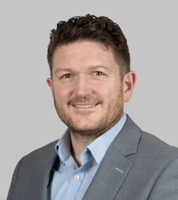22 May 2008
EU campaigners seek US style safety legislation for healthcare workers
SMITHS Group, the global technology business, today announces that its Medical division has won $30 million in contracts for safety needles and intravenous catheters that help to protect healthcare workers from potentially fatal needlestick injuries.
Needlestick injuries can occur when a healthcare worker, typically a nurse, attempts to withdraw blood or inject a patient and is accidentally ‘stuck’ by the sharp end of a hypodermic needle or intravenous device, creating a risk of blood borne infection.
The contracts, with a major group purchasing organisation, are for Smiths Medical’s safety product line including the new Needle-Pro® EDGE™ hypodermic safety device, which was launched globally last year, as well as the AdvantIV® and ProtectIV® intravenous catheters.
Unlike standard needles, Smiths Medical’s Needle-Pro® EDGE™ features a protective safety guard to cover the sharp end of the needle, helping to prevent injuries and infection. The needle has colour-coding to help medics identify the correct needle size quickly and easily and provides needle guidance for greater accuracy. It also eliminates ‘dead space’ (a term which describes actual space in which medication is trapped and so is not delivered through the needle) helping to ensure greater accuracy in delivering medication and limiting waste, potentially saving hospitals money.
Following significant investment in high-tech automated machinery last year, Smiths Medical is now able to manufacture its full range of safety products, from two automated sites in the United States: Southington, Connecticut and Keene, New Hampshire. Products include those that are used for TB testing, insulin and allergy injections, blood withdrawl and immunisations. Record production rates were recorded towards the end of last year and are expected to continue as more contracts are won and demand increases.
Srini Seshadri, Group Managing Director for Smiths Medical, said: “We have continued to establish ourselves as one of the leading companies producing safety engineered devices in this market, focusing our efforts on keeping people safe. Needlestick injuries are a serious issue for healthcare workers and patients, and we want to do everything we can to help eliminate unnecessary risks such as these from hospitals, health centres and surgeries.”
Over 600,000 US healthcare workers each year report needlestick and sharps injuries, which can spread potentially fatal blood-borne infectious diseases such as HIV, Hepatitis B and Hepatitis C . In the UK alone, an ongoing Royal College of Nursing study has shown that around 100,000 NHS workers suffer needlestick injuries each year . A large number of injuries are also believed to go unreported.
Demand for safety engineered devices in EU countries is rising and many European countries, such as Germany, France and Spain, have adopted directives to protect their health workers in some regions. While legislation to mandate the use of safety needles to protect healthcare workers across the United States was effected in 2000, there is currently no consistent legislation across the EU to ensure similar levels of protection.
Stephen Hughes MEP, who is campaigning to mandate the use of safety devices across Europe, said: “One million European healthcare workers suffer from the trauma of needlestick injuries each year. We need to do everything we can to mitigate the risk and provide the protection our health workers need before others are seriously affected.”
ENDS
Notes to editors:
General media enquiries
Contact our global media and communications team at:

Please note – the press team can only answer enquiries from accredited members of the press.
Related articles

John Crane signs global framework agreement with leading international energy company
Read our latest company news as John Crane signs a global framework agreement with a leading international energy company
Find out more

Smiths Group plc sale of Smiths Detection
Find out more

Smiths Group plc – Q1 FY2026 Trading Update
Find out more

